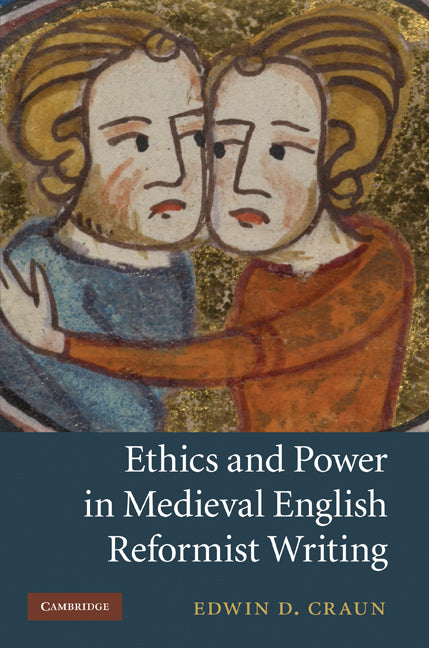Freshly Printed - allow 8 days lead
Couldn't load pickup availability
Ethics and Power in Medieval English Reformist Writing
Explores how medieval Christians were encouraged to rebuke the sins of others, especially clerical authorities.
Edwin D. Craun (Author)
9780521199322, Cambridge University Press
Hardback, published 18 February 2010
232 pages
23.5 x 15.9 x 1.6 cm, 0.504 kg
'… the book's thematic focus is on the duty that lies upon the Christian, whether cleric or lay, to correct an erring brother, and its chronological and local coverage is the writings of the late fourteenth and early fifteenth centuries in England … Any reader is likely to find much to intrigue and sometimes to provoke here.' Anne Hudson, Medium Aevum
The late medieval Church obliged all Christians to rebuke the sins of others, especially those who had power to discipline in Church and State: priests, confessors, bishops, judges, the Pope. This practice, in which the injured party had to confront the wrong-doer directly and privately, was known as fraternal correction. Edwin Craun examines how pastoral writing instructed Christians to make this corrective process effective by avoiding slander, insult, and hypocrisy. He explores how John Wyclif and his followers expanded this established practice to authorize their own polemics against mendicants and clerical wealth. Finally, he traces how major English reformist writing - Piers Plowman, Mum and the Sothsegger, and The Book of Margery Kempe - expanded the practice to justify their protests, to protect themselves from repressive elements in the late Ricardian and Lancastrian Church and State, and to urge their readers to mount effective protests against religious, social, and political abuses.
Introduction
1. Universalizing the practice of correction
2. Negotiating contrary things
3. Managing the rhetoric of reproof: the B-version of Piers Plowman
4. John Wyclif: disciplining the English clergy and the Pope
5. Wycliffites under oppression: fraternal correction as polemical weapon
6. Lancastrian reformist lives: toeing the line while stepping over it.
Subject Areas: Church history [HRCC2], Literature: history & criticism [DS], Literature & literary studies [D]


